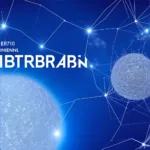
DeFi, structured products, credit risk, and smart contract risk are all essential components of the evolving financial landscape. Decentralized finance (DeFi) has demonstrated its resilience by overcoming numerous challenges and establishing itself as a testing ground for new and old concepts in finance, economics, governance, and property rights in the digital economy.
DeFi: A Shift from Credit Risk to Smart Contract Risk
One of the primary differences between DeFi and traditional finance is how they handle credit risk. In the world of DeFi, credit risk is exchanged for smart contract risk. This means that credit records become irrelevant, and borrowing power is determined solely by the value of the collateral. This shift in risk management allows for greater transparency and reduces the reliance on credit scores and financial history.
Structured Products and Exotic Options in DeFi
For complex financial products like structured products and exotic options, DeFi offers a unique solution by placing the full payoff on-chain. This enables complete transparency without the need for credit risk. Ribbon Finance, for example, has deployed a vault that replicates a classic structured product, the autocallable, in a smart contract. Once the vault is created, neither Ribbon nor the investor can default, effectively eliminating credit risk.
Programmable Money and Automation in DeFi
DeFi’s transparency and programmable money properties make it an ideal platform for automating complex payoffs. This automation not only reduces human error but also streamlines the process, making it more efficient and accessible. By leveraging the power of smart contracts, DeFi platforms can create and manage complex financial products with ease.
Global Demand and Adoption of DeFi Solutions
By improving financial solutions with global demand and adoption, DeFi can increase its chances of long-term success. The growth of DeFi has been fueled by its ability to provide innovative financial products and services to a broader audience, bypassing traditional financial institutions and their often restrictive requirements.
As DeFi continues to gain traction, more individuals and institutions will likely adopt these solutions, further solidifying its position in the financial ecosystem. This global demand for DeFi products and services will help drive innovation, as developers and entrepreneurs strive to create new and improved offerings that cater to the needs of users worldwide.
Regulatory Challenges and the Future of DeFi
Despite its many advantages, DeFi faces regulatory challenges that could impact its growth and adoption. As the sector continues to expand, regulators may impose stricter rules and requirements to ensure consumer protection and prevent illicit activities. DeFi platforms and users must be prepared to adapt to these changes and work with regulators to ensure a safe and compliant environment.
In conclusion, decentralized finance has proven to be a robust and innovative solution to many of the issues faced by traditional finance. By addressing credit risk through smart contract risk, offering transparent and automated solutions for structured products and exotic options, and catering to global demand, DeFi has the potential to revolutionize the financial industry. As the sector continues to grow and evolve, it will be essential for DeFi platforms and users to navigate regulatory challenges and maintain a focus on innovation, transparency, and accessibility to ensure long-term success.




